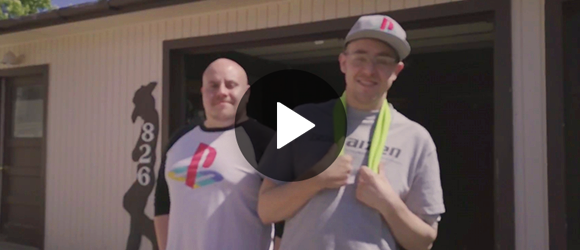
Chapter 1
Self-Employment Overview
- Introduction
- Self-Employment and VR
- Tier 1 and Tier 2 Businesses
- Consumer and Counselor Roles
- Chapter Review

Introduction
People explore self-employment for many reasons. Self-employment can offer a flexible schedule. It can create opportunities for work when there aren’t many options for paid employment. It can allow for more creativity or continuing a family tradition. Whatever the reason, many people with and without disabilities dream of owning a business.
This guide is designed to help you decide if self-employment is a good option for you, and can help you work through the first stages of business planning. Although it was written to help you and your Vocational Rehabilitation (VR) counselor work through the self-employment process together, the guide can be used by anyone thinking about starting a business.
The guide is divided into eight chapters. The first seven chapters provide information about starting a small business. The final chapter provides additional resources.
To get started, continue reading this section and then click on the tabs within each chapter to learn more.
Website Housekeeping
- Website Navigation: Click on the Website Navigation heading at the very top of the page if you are unsure how to navigate this site
- Materials: Click on the Materials heading at the top of the page to download print-only versions of each chapter, chapter worksheets, and examples.
- Glossary: Download a Glossary (PDF) of business planning terms to use as a reference if there are business terms you are not familiar with in this toolkit.

Chapter Overviews
Chapter 1: Self-Employment Overview
The Introduction to Self-Employment chapter goes over some basic information about self-employment. It also describes how the process may work in Vocational Rehabilitation.
Chapter 2: Self-Employment Readiness
The Self-Employment Readiness chapter asks you to think about your reasons for becoming self-employed. You will think about how self-employment fits with your values, traits, and skills.


Chapter 3: Business Feasibility
The Business Feasibility chapter focuses on your business idea and how to figure out if the business has a good chance of success.
Chapter 4: Introducing the Business Plan
The Introducing the Business Plan chapter describes the parts of a business plan and talks about why it’s important to plan out business details ahead of time.

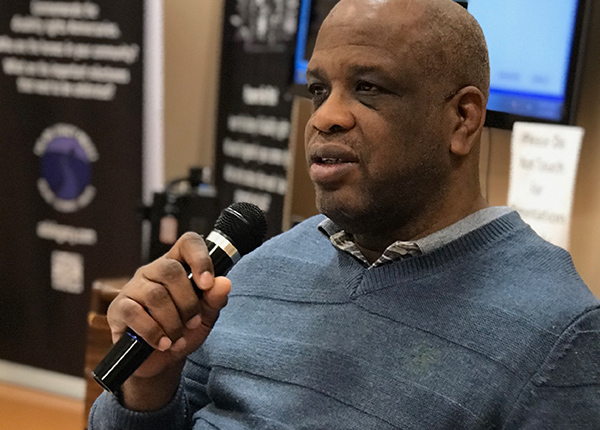
Chapter 5: The Marketing Plan
The Marketing Plan chapter highlights the many ways you can do research about your business. It also describes different ways to reach customers.
Chapter 6: The Operations Plan
The Operations Plan chapter covers legal requirements for getting started, and how your business will be managed and operated.


Chapter 7: The Financial Plan
The Financial Plan chapter helps you predict costs and revenues during business start-up and beyond.
Chapter 8: Business Development Resources
The Business Development Resources chapter provides links to resources you might use for advice, training, grants, or loans.

Use the "Return to Tabs" button below to jump to the tab navigation bar.
Then continue by selecting the next tab in the list.
Self-Employment and VR
Self-employment is NOT a vocational goal. It is a way to reach a vocational goal.
For example, your vocational goal may be to become a chef. To reach this goal, your strategy might be to work for someone else’s business, such as a restaurant. Or, you could start your own business, such as a catering service or food truck.
When working with VR, you first decide on a vocational goal. Then you and your VR counselor will talk about different strategies to reach this goal, which might include self-employment.
Starting a business requires a lot of work, time, and planning. By going through the material in this guide, you will learn more about what it takes to start your own business. At any point, you may decide that self-employment is not a good choice for you (or not a good choice for you right now). It is okay to change your course. Different people use different strategies to achieve their goals, and self-employment isn’t the right strategy for everyone.
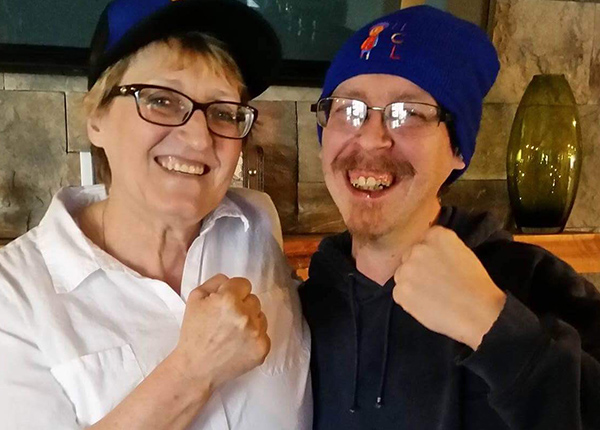
VR Self-Employment Process
Each VR agency will have a slightly different process for starting self-employment. Most agencies will include the following activities, but not necessarily in this order. Talk to your VR counselor about the specific steps for your agency.
Explore Self-Employment
To get started, tell your counselor you are interested in self-employment. Explore the pros and cons of self-employment with your counselor. During this step, your counselor can give you information about the VR agency’s self-employment policies and procedures.
Assess Your Readiness
Assess your readiness for self-employment and the feasibility of your business idea.
- Do you have the skills and dedication it takes to open your own business?
- How do-able is your business idea? Is it actually feasible?
- Do you have a realistic picture of what it means to own your own business?
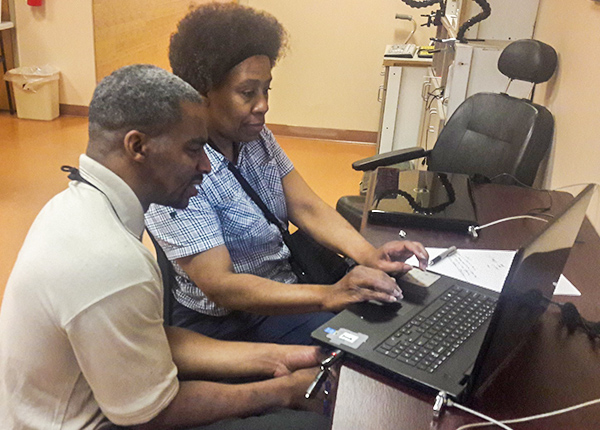

Develop an Individual Plan of Employment (IPE)
Work with your VR counselor to outline steps towards reaching your vocational goal. At this point in the process, the IPE is focused on your vocation or profession, not self-employment.
Prepare for Self-Employment
Figure out the resources you need to prepare for self-employment. This could include training, education, or other activities.
- What additional skills do you need to run your business? These might include things like bookkeeping or computer skills.
- If you are new to self-employment, could you meet with a business owner who makes a similar product or service to learn how they run their business?


Assess Your Continued Interest
After preparing for your vocation and building skills to run your own business, are you still interested in self-employment?
- If not, explore other options with your counselor, such as paid employment.
Write Your Business Plan
Work with your counselor and other business mentors to develop your complete business plan.
- Review chapters in this guide to work through the business planning process.
- Work with business development resources in your community.
- Remember: start small. You can always expand after you’ve been in business for a while and your business is doing well.


VR Review
Once you have completed your business plan, the VR agency will review it.
- If the agency supports your self-employment proposal, your counselor will change your IPE to include information about how much funding VR will give you for your business, and how that funding can be used.
Secure Funding
If needed, secure more funding for business start-up.
- Identify funding options, such as family, friends, banks, or microloan programs to help cover initial business costs.
- If funds are not available, talk with your VR counselor about revising your business goals or think about other employment options.

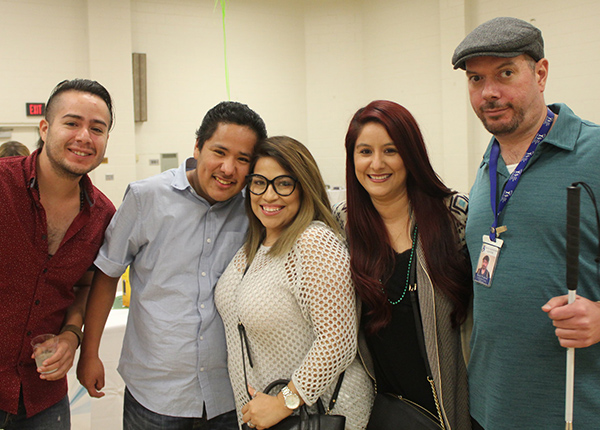
Develop Supports
Develop a support system for operating your business.
- Work with your counselor to find a mentor or expert to help you with questions or issues as they come up.
- Identify personal supports, such as friends or family, who are willing to help as you get your business started.
- Go over benchmarks that VR will use to follow and close your case.
Run Business and Close VR Case
Once your business is up and running, you and your counselor will develop targets for closing your self-employment case with the VR program. These targets usually include making a certain amount of profit, or selling a certain number of items. Once your business reaches these targets, your counselor will continue following your case for a specific period of time (90 days) to be sure the business is stable before closing your case with the VR program.


VR Self-Employment Limits
VR Limits
VR programs often limit the types of self-employment businesses and costs they will support. For instance, most agencies have a limit on the amount of seed capital they can provide. Seed capital is the money needed to start a business.
Every VR agency has their own set of rules. Check with your counselor about the specifics in your state.
Business Types
Business types that may not be supported by the VR agency include:
- Businesses that are speculative (for example, investment or invention efforts that have high risk)
- Businesses that are organized as non-profits
- Businesses that are done as hobbies rather than a means of gainful income
- Franchise businesses
- Multi-level marketing businesses, also known as pyramid schemes, which require you to recruit additional people to generate returns or money. (Read more about pyramid schemes on the Federal Trade Commission Consumer Information website: Multi-Level Marketing Businesses and Pyramid Schemes)


Business Costs
Business costs that may not be supported or covered with VR funds include:
- Purchase of property (such as land and buildings)
- Labor costs
- Interest payments on loans
Click on the "Section Review" button for a short review of the content of this tab.
Use the "Return to Tabs" button below to jump to the tab navigation bar.
Then continue by selecting the next tab in the list.
Tier 1 and Tier 2 Businesses
Some VR agencies use a tiered system to classify self-employment businesses. Tier 1 businesses have low start-up costs and are simple to get going. Tier 2 businesses require more complete planning and capital investment for start-up and future growth.
Note: Your VR agency may have different criteria for Tier 1 and Tier 2 businesses, or may not use a tiered system for evaluating businesses.

Tier 1 Businesses
Tier 1 businesses characteristics:
- Lower start-up costs
- Smaller contributions from VR
- Business doesn’t take long to get set up, and makes money quickly
- Low overhead costs for ongoing operations
- Limited marketing needs
Tier 1 Business Examples
- A hair stylist who rents a booth in an existing salon
- A bookkeeper working from home as an independent contractor
- A jewelry maker who wants to sell work at craft fairs
Tier 1 businesses are less risky because they are generally less expensive to get going. If the business owner has previous experience and success in the vocational area of the proposed business, this also makes a Tier 1 business less risky.
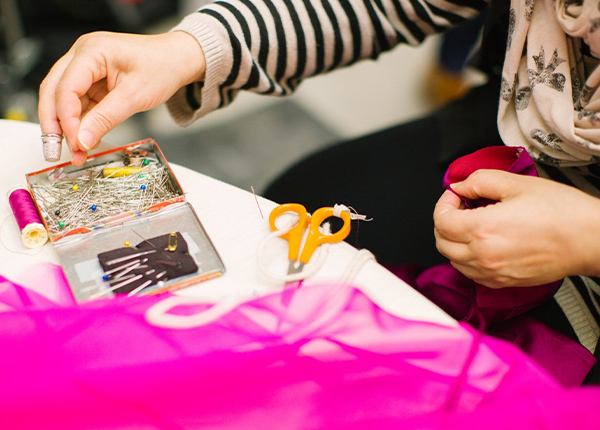

Consider Scaling Down
Many people decide to begin self-employment with a Tier 1 business. Tier 1 businesses allow people to test the waters of their industry and build skills before deciding if they want to scale up their business.
Maybe your final goal is to own a bookstore. This would require a lot of upfront money to secure a space and inventory. How might this goal be scaled down? Maybe you could start by seeking out rare books at used bookstores and selling them online. Then, after you’ve done that for a while, you could reassess your original goal. You will have earned savings, skills, and knowledge of the industry, which will make it easier to open your own store, if you decide to continue.
Tier 1 Business Planning
In some VR agencies, Tier 1 businesses may not require a complete business plan. For instance, a feasibility study (similar to steps outlined in Chapter 3: Business Feasibility) is often enough for evaluating and starting a Tier 1 business.


Tier 2 Businesses
Tier 2 business characteristics:
- Large start-up costs
- Large contributions from VR
- Additional or outside financial supports, such as loans or family investments
- Significant machinery or inventory costs
- A credit line to secure or maintain operations
- An in-depth business and marketing plan to get started
Tier 2 Business Examples
- A gift shop
- A food truck
- A home inspection service
Tier 2 businesses can be harder and riskier to start because they require more funds and debt to get started.
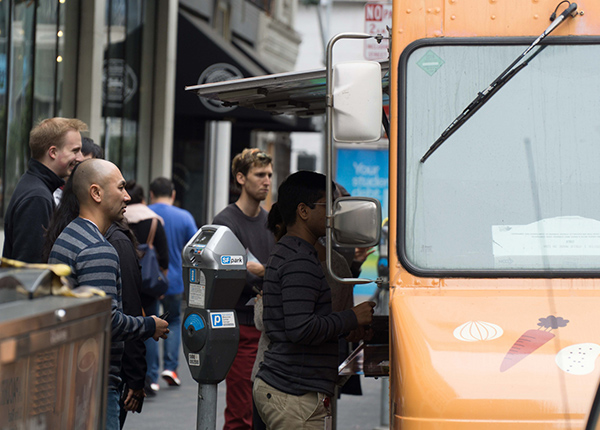

Consider a Tier 1 Business
In many cases, people who start Tier 2 businesses have previous experience in their industry. This experience makes it easier for them to succeed. If you lack experience but think you have a Tier 2 business idea, think about how it could be scaled down to a Tier 1 business. Tier 1 businesses need less start-up funding. They also give you an opportunity to experience being self-employed without having to invest quite as much money or resources. You can always scale up your business to a Tier 2 business once you have gained more experience.
Tier 2 Business Planning
Tier 2 businesses usually require a complete business plan that describes marketing, operations, and financial planning in detail.

Click on the "Section Review" button for a short review of the content of this tab.
Use the "Return to Tabs" button below to jump to the tab navigation bar.
Then continue by selecting the next tab in the list.
Consumer and Counselor Roles
Your VR counselor will guide you through the self-employment process. However, you and your counselor each have some specific roles.

Consumer Roles
As you work to become self-employed, you will be expected to complete readiness, business start-up, and business operations activities. Your VR counselor will help you with these activities, but you will need to do most of the work yourself.
Readiness
Consumer readiness activities include:
- Exploring self-employment and other employment options with your counselor
- Completing self-assessments about your readiness to become self-employed
- Developing your business idea
- Evaluating the feasibility of your proposed business

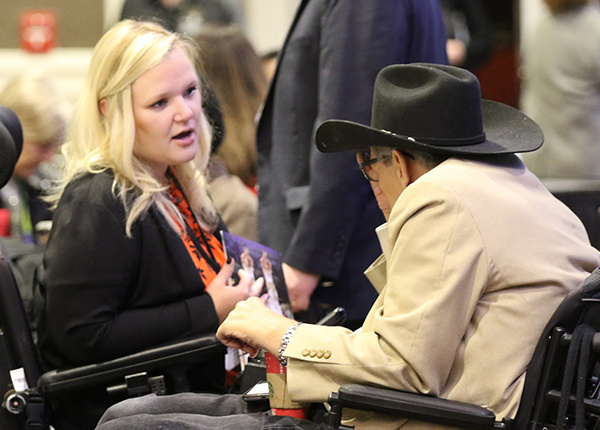
Business Start-Up
Consumer business activities include:
- Establishing connections with people who will help you develop your business
- Developing a business plan
- Obtaining necessary permits, licenses, and insurances
- Securing business start-up funds
- Locating suppliers
- Developing a customer base
Business Operations
Consumer business operations activities include:
- Opening the business
- Running the business
- Providing information to VR about your progress until your case is closed

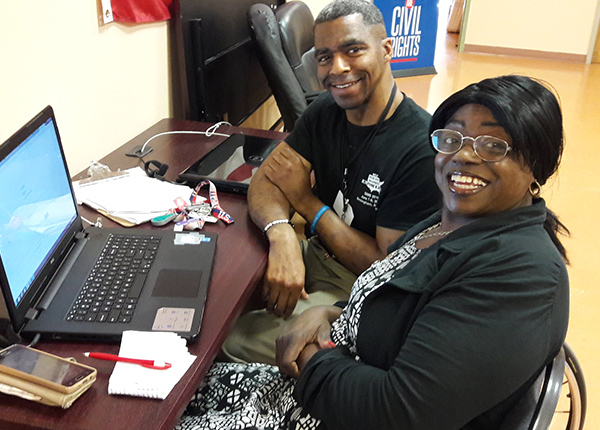
Counselor Roles
Counselors guide consumers through the self-employment process. They connect consumers with additional resources for training, technical assistance, and financial assistance for business start-up. They provide preparation, start-up, and follow-along support.
Preparation
Counselor preparation support includes:
- Describing the agency’s self-employment process, including VR and consumer roles
- Helping the consumer assess readiness for self-employment
- Helping identify any training needs or supports


Business Start-up
Counselor business start-up support includes:
- Supporting the consumer as they develop the business plan
- Providing resources and helping the consumer make connections with people in the community who can help with business development
- Obtaining necessary Release of Information forms so the counselor can share information about the consumer with business consultants
- Reviewing the final business plan and determining VR’s contribution
- Amending the Individualized Plan for Employment (IPE)
- Determining targets the business needs to achieve, such as profit targets, before VR closes the case
Follow-Along
Counselor follow-along support includes:
- Tracking business progress to determine if additional supports are needed
- Assessing monthly profit levels to determine a starting point for the 90-day closure process

Use the "Return to Tabs" button below to jump to the tab navigation bar.
Then continue by selecting the next tab in the list.
Chapter Review
Self-employment is one option for reaching your vocational goal. This guide is meant to help you explore your readiness for self-employment and provides you with resources to work through the process. This introductory chapter covered:
- How the self-employment process may unfold in VR
- Differences between Tier 1 and Tier 2 businesses
- Consumer and counselor roles

Prepare
Write down answers to the following questions. You can use your responses as a starting point for talking with your counselor about your business idea.
- What is your vocational goal?
- Including self-employment, what are the different ways you could achieve this vocational goal? These might include working for a business in your town.
- What skills, training, or education might you need to start your own business?
Click on the “VR Counselor Review” button for a short review of information for VR counselors from this chapter.
Ready to get started? Go to Chapter 2: Self-Employment Readiness to consider if self-employment is a good fit.
